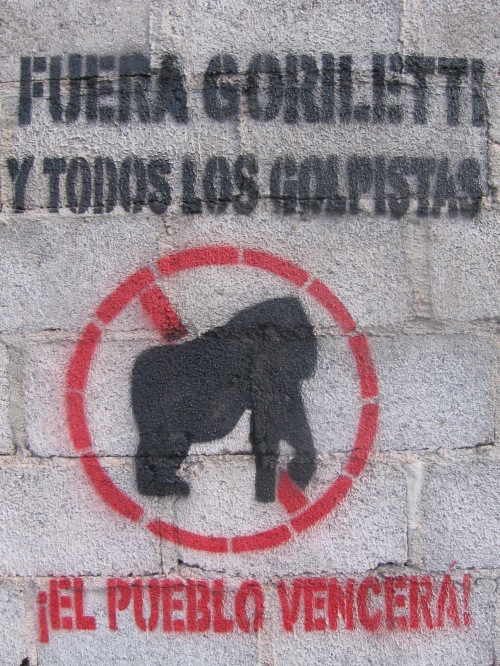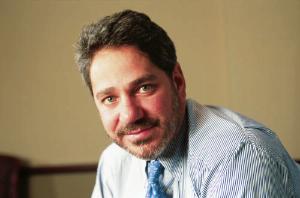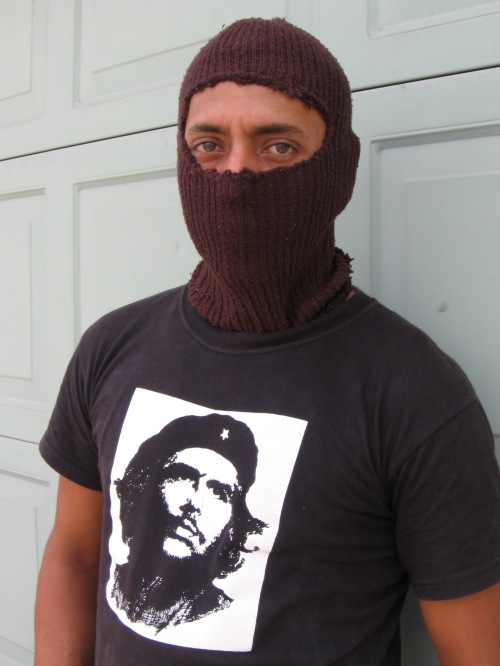
Fear and Loathing in Honduras: Elections Under Repression
May I Speak Freely Media
November 20, 2009
As Honduras’ Nov. 29 election day quickly approaches, the broader picture of whether the vote can truly be free and fair has so far escaped the attention of the U.S. government and much of the world’s mainstream press. While focusing on the terms of the Tegucigalpa-San José Accords, their compliance or lack thereof, and the seemingly two-dimensional Manuel Zelaya/Roberto Micheletti dispute over the country’s presidency, government and media observers alike have paid scant notice to the ongoing suppression of civil, constitutional and political rights of the dissenters, which seriously undermines any hope for an end to the political crisis, let alone an unfettered electoral process. As Bertha Oliva, director of the Committee for Relatives of the Detained-Disappeared, testified in a Nov. 5 U.S. Congressional briefing, “Dialogue under repression isn’t dialogue … nor is dialogue that doesn’t recognize human rights.”
Free and fair?
International standards of free and fair elections, set out by the Inter-Parliamentary Union in 1994 and subsequently adopted by the U.N. Commission on Human Rights in 2000 and the OAS Inter-American Democratic Charter in 2001, call for basic rights of political expression, movement within the country and an equal basis for campaigning of all parties. In an essay on the topic, Eric Bjornlund of Democracy International wrote, “The political environment should be free of intimidation.” On its face, these conditions don’t seem to be met in Honduras’ current political climate.
Honduran and international human rights groups, the Organization of American States and the Inter-American Commission on Human Rights have expressed concerns over political repression and recognition of election results. Much of Latin America, including Brazil and Argentina, have announced they will not recognize the election results.
MISF has previously reported widespread media repression since the June 28 coup, including the September closure and seizure of assets of Radio Globo and Canal 36, two of the last independent opposition voices on air. The two stations have since resumed broadcasting, albeit with limited transmission capacity. Just today Reuters reported that Canal 36 news programming was interfered and prempted by cowboy movies.
MISF Associate Producer Oscar Estrada said that the stations are severely self-censoring, fearing a repeat of military reprisals. One Radio Globo journalist, Luis Galdámez, has persisted in criticizing the de facto government on his daily program “Behind the Truth,” and, according to Amnesty International, has been receiving death threats. On Nov. 19 it was reported that Canal 36’s broadcast signal was being interfered with and news programming replaced with cowboy movies.
The Honduran government on Oct. 5 issued a decree authorizing the National Telecommunications Commission (Conatel) to shut down any medium that calls for abstaining from the elections or that “incites hatred,” which, according to Estrada, is widely taken as code for speaking against the state. While Conatel hasn’t yet enforced the decree, Reina Rivera, director of the Honduran NGO Center for Investigation and Promotion of Human Rights (Ciprodeh), said she expected it will in the immediate run-up to election day.
Privation of civil liberties has also been reported by MISF. A Sept. 27 emergency decree restricting free speech, assembly and movement—all critical aspects of a free electoral cycle—which de facto president Micheletti had promised to annul, wasn’t repealed until Oct. 25, a few days before the Tegucigalpa-San José Accord was reached. That the decree has largely been replaced by more focused decrees issued by individual ministries much to the same effect.
In addition to the Conatel decree, the national police have issued a resolution, a demonstrably illegal act, that any march or protest requires 24 hours’ notice and permission from the police. In practice, however, this policy has only applied to leftist and independent candidates, for whose events the police are the first—and, as a consequence, last—to show up.
Another decree, issued by the Security Ministry, classifies as terrorism any takeover of public space by the resistance and the use of loudspeakers. To date, several leftist political rallies, which by necessity use sound systems, have been charged in this manner.
The dissolution of any agreement on the return to power of the deposed Zelaya—a precondition to election participation given by the Resistance Front Against the Coup and the popular independent candidate, union leader Carlos H. Reyes—has resulted in the effective disenfranchisement of the opposition in the elections. Reyes has officially withdrawn from the race and the Front, as have 102 of the 128 Innovation and Unity Party congressional and mayoral candidates, as well as a faction of Zelaya’s (and Micheletti’s) majority Liberal Party.
Many leftist organizations and Zelaya himself consider the election hopelessly unfair, have called for its boycott and have begun a process to legally contest and postpone voting.
On Nov. 17, Attorney General Luis Alberto Rubí announced that the 530 prosecutors of the Public Ministry will be actively seeking out and cracking down on anyone who commits “electoral crimes,” such as impeding the voting process, urging people to not participate, or destroying political propaganda, all of which will be punishable with a four-year prison sentence. The practical effect of these strictures is to further stifle opposition voices by stripping them of the one recourse they had left.
The international justice organization CEJIL reported to the United Nations and Inter-American Commission on Human Rights on Nov. 10 about persecution and retaliation against judges and public defenders who have expressed opposition to the coup. “The acts against these officials are an illegal restriction of their rights and an intimidation tactic to silence their voices and those of the thousands of people who oppose the regime,” said Viviana Krsticevic, executive director of CEJIL.
Honduras rights advocate and former independent slate candidate Berta Cáceres, speaking with the Chilean publication El Clarín, noted that the Electoral Tribunal has engaged the military—the same body that has been illegally arresting, beating up and even killing members of the coup opposition—to supervise the balloting. She said whoever is elected on Nov. 29 will represent a “golpista” government.
Explaining an increasingly widely held view within the country, MISF’s Estrada said, “All the parties have begun to sound like one because [the military,] under its doctrine of national security, runs the country, and will continue to run the next government.”
Ciprodeh’s Rivera said reports are already coming in of heavy militarization in certain remote areas known for being armed, and she fears armed conflict. Ulises Sarmiento, a Liberal Party candidate for deputy in Olancho province and a strong resistance advocate, was attacked Nov. 18 by at least eight men armed with heavy weaponry and grenades. Two of his security detail, Delis Noé Hernández, 27, and José Manuel Beltrán, 35, were killed in the attack.
According to both Estrada and Rivera, the election has stoked fears among Hondurans on both the right, who fear unrest in the streets and the implementation of Hugo Chavez-style populism, and the left, who fear massive, possibly armed repression, and the legitimization of the coup through the voting process.
U.S. recognition
The United States has not only not made any acknowledgement of such apparently unjust and illiberal electoral conditions, but is indicating support for the election and recognition of its outcome.
As a primary broker in the Tegucigalpa-San José Accord, the U.S. State Department initially seemed to be riding to the rescue in a last-ditch effort to reinstate Zelaya to power preceding the elections. However, when it became evident that Honduras’ Congress was not going to make a timely decision on Zelaya’s restitution and when Micheletti unilaterally formed the unity government, the United States insisted that the accord was still in force, indicating at a press conference on Nov. 6—a day after the deadline to reinstate Zelaya—that it would likely still recognize the election.
While this statement seemed to confuse many, it is clearly the official State Department position, since Thomas Shannon, assistant secretary of the Bureau of Western Hemisphere Affairs, echoed them a couple days earlier on CNN en Español, where he stated, “The future of Honduran democracy is in Hondurans’ [Congressional] hands,” answering affirmatively a question about recognizing the elections, no matter what transpires.
An end to the crisis?
Both Honduras and the United States want to see an end to the crisis, which is unlikely to come with the election. According to Estrada, “This will end one of three ways: by means of a patent campaign of terror that decapitates all the populist organizations; by way of an accord that brings about genuine constitutional reform; or, the third option, war.”
According to Estrada and Rivera, the election has stoked fears among Hondurans on both the right, who fear unrest in the streets and the implementation of Hugo Chavez-style populism, and the left, who fear massive, possibly armed repression, and the legitimization of the coup through the voting process.
For more information
“Berta Oliva (COFADEH) Gives Testimony at Congressional Briefing sponsored by Rep. Grijalva D-AZ.” Quixote Center, November 12, 2009.
Bjornlund, Eric. “Free and Fair Elections.” Democracy International.
Casasús, Mario. “Bertha Cáceres: ‘El pueblo busca estrategias para el desconocimiento de las elecciones en Honduras.‘” El Clarin, November 11, 2009.
“Con 530 fiscales perseguirán los delitos electorales: Rubi.” El Tiempo, November 17, 2009.
“Entrevista Thomas Shannon en CNN 04-Nov.” YouTube.
“Honduran channel says de facto govt blocks signal.” Reuters, November 20, 2009.
“Honduras: Honduran radio journalist fears for his life: Luis Galdámez.” Amnesty International, Novermber 16, 2009.
“IACHR concludes its 137th period of seessions.” Organization of American States, November 13, 2009.
Parks, James. “Trumka: Free Elections Not Possible Now in Honduras.” AFL-CIO Now Blog, November 16, 2009.
“Poder Judicial persigue a jueces opuestos al golpe.” VosElSoberano, November 14, 2009.
U.S. Department of State. “Daily Press Briefing.” November 6, 2009.
U.S. Department of State. “Daily Press Briefing.” November 18, 2009.
Zelaya Rosales, Manuel. “Carta Presidente Jose Manuel Zelaya Rosales al Presidente Obama.” November 14, 2009.
“Zelaya to legally contest Honduras elections.” Agence France Presse, November 18, 2009.
“Honduran channel says de facto govt blocks signal.” Reuters, November 20, 2009.
May I Speak Freely Media
www.mayispeakfreely.org
Forward this e-mail to a friend.
Subscribe to the Honduras News in Review e-mail update.
Go to the HNR archive for past editions of the News in Review.
Read some history on human rights in Honduras.
Follow our Twitter updates or become a fan on our Facebook page.
Please support our reporting on human rights in Honduras! As chaos continues in Honduras after the June 28 coup, MISF Media has been in close communication with people on the ground as well as following international news on unfolding events. We are making every effort to publish our Honduras News in Review, a regular English-language digest of human rights news in Honduras—distributed monthly to over 34,000 subscribers, including government officials, policy makers, international media, academics, activists, students and others. We need your support now more than ever. At this moment, Honduras is suffering widespread rights abuses that demand our attention—but we can’t continue to provide coverage of the situation without your help. Please contribute to keep our work going! Visit our website to MAKE A SECURE, TAX-DEDUCTIBLE DONATION TODAY! Thank you for your support!
About: Founded in 2001, May I Speak Freely Media (MISF) is a nonprofit educational organization dedicated to promoting social change through media. Twenty-five years after the Honduran military, with support from the United States, committed brutal human rights abuses against its citizens, MISF Media is working with human rights advocates, international NGOs and grassroots organizations to document rights abuses and justice efforts in Honduras, help victims tell their stories, raise public awareness, and prevent the repetition of past U.S. foreign policy mistakes. Offering journalism, historical records, and other educational material, www.mayispeakfreely.org serves as a resource for policy makers, rights advocates, academics, journalists, activists and the general public. MISF Media is a fiscally sponsored nonprofit project of Media Island International, Olympia, Wash.









